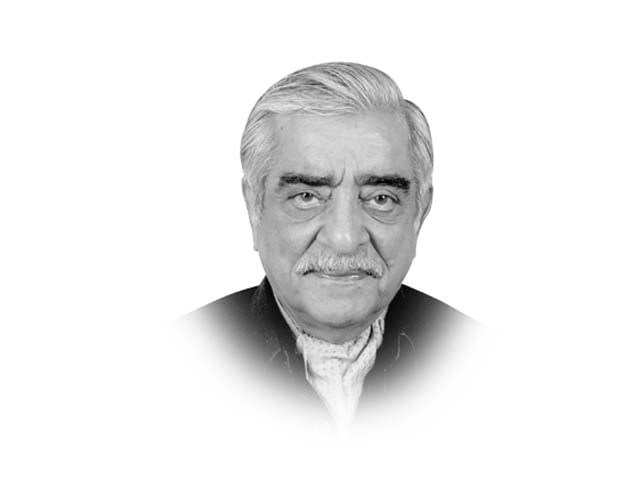Our region’s opium problem
Next to peace in Afghanistan, curbing drug trafficking should be our highest domestic and foreign policy priority

Donors, on whose largesse Afghanistan will continue to be dependent for many years to come, are probably more concerned with what President Ghani has done by way of sanctioning the reopening of the Kabul Bank inquiry, the instituting of cases against corrupt ministers from the previous regime, the attempts at introducing much-needed reforms in the administrative structure and the fresh scrutiny of district and provincial governors with the aim of ensuring that competence rather than political considerations determine these appointments. After all, this is what the Mutual Accountability Framework, signed in Tokyo, called for in exchange for a promise of $4 billion annual economic assistance for four years (now extended to 2017).
This assistance is sorely needed. President Ghani, with characteristic frankness, has described today’s Afghanistan as “corrupt and bankrupt”. Government revenues have fallen 22 per cent short of the target and are well below the figures for the last year. Soldiers from the Afghan Public Protection Force have been demonstrating outside parliament because they have received no salaries for the last six months. There is apparently no money to pay the salaries of district governors.
For Afghanistan’s neighbours, particularly Pakistan, the priority assigned to peace is perhaps, even more significant. In the turbulence of the last few months, there has been a steady, albeit unpublicised, flow of Afghans into Pakistan, and this will turn into a flood if, absent reconciliation, the Taliban advances in virtually every part of Afghanistan bring about the same sort of civil war situation that prevailed in the 1980s. What Pakistan can do to advance reconciliation will be the subject of a longer subsequent column. The rest of this column will focus on the problem created for the region and for Pakistan and Iran in particular, by the growth in opium production in Afghanistan.
Despite the expenditure of $7.6 billion by the international community to eradicate opium cultivation, the area under poppy cultivation has grown from 91,000 hectares in 1999 to about 209,000 hectares in 2013. The 2013 crop, according to the UNDOC, was worth $3 billion or 50 per cent more than in 2012. The Taliban profit from this source but the main beneficiaries have been the militia-maintaining warlords and corrupt government officials.
The eradication effort proved abortive, not only because the British, who led the initial effort, and subsequently the Americans were mindful that opium cultivation provided a livelihood for poor Afghan farmers in the south of the country, but equally importantly, because their anti-terrorist campaign needed the support of the unscrupulous warlords who bankrolled the cultivation and trafficking.
Whatever the causes, the current reality is that Afghanistan has gone from being relatively free of opium addicts to having an estimated one million users. Iran and Pakistan, through which 50 per cent and 33 per cent respectively of the total export is routed, have seen a similar explosive growth. A web of sinister connections has been established in both countries, undermining border controls and facilitating movement of terrorists as much as of drugs and other goods. There should be no doubt that these smuggling networks have contributed substantially to creating the recent problems on the Pakistan-Iran border. Next to peace in Afghanistan, curbing this trafficking should, therefore, be our highest domestic and foreign policy priority.
Published in The Express Tribune, November 3rd, 2014.
Like Opinion & Editorial on Facebook, follow @ETOpEd on Twitter to receive all updates on all our daily pieces.













COMMENTS
Comments are moderated and generally will be posted if they are on-topic and not abusive.
For more information, please see our Comments FAQ